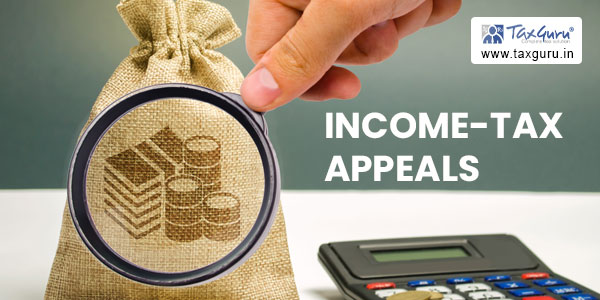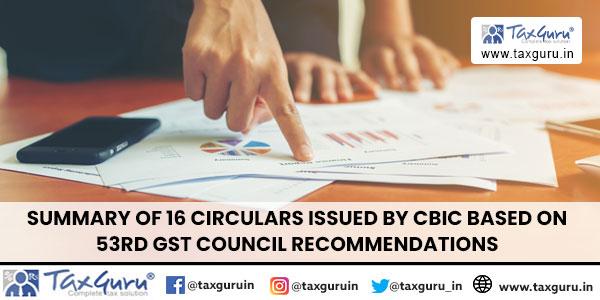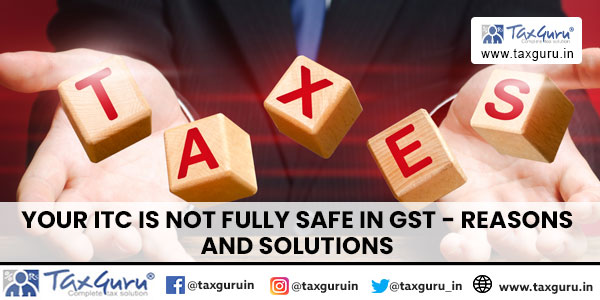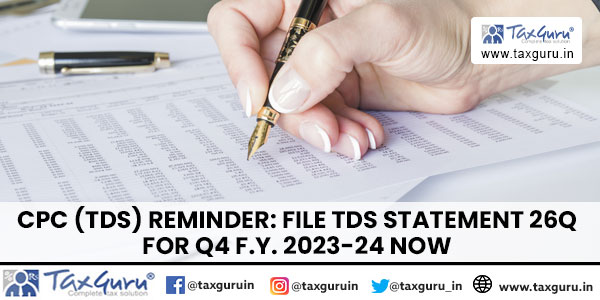Case Law Details
Rajkumar B. Agarwal Vs DCIT (ITAT Pune)
No addition on account of jewellery items on seized documents did not tally with description of jewellery in Wealth-tax returns in case total weight of jewellery was same
Conclusion: Where total gold jewellery in weight found at the time of search matched with the earlier declarations made by assessee in his Wealth-tax returns and VDIS, there could be no question of making any addition simply on the ground that the description of items in the list declared under Wealth-tax returns!VDIS was different from those actually found.
Held: The issue arose for consideration was whether an addition could be made simply on the ground that the jewellery items mentioned on page nos. 2 and 3 of seized documents did not tally with the description of jewellery given in Wealth-tax returns/VDIS declaration notwithstanding the fact that the total weight of jewellery was tallying. It was opined that this view point had no legal legs to stand on. So long as the total gold jewellery in weight found at the time of search matched with the earlier declarations made by the assessee in his Wealth-tax returns and VDIS, there could be no question of making any addition simply on the ground that the description of items in the list declared under Wealth-tax returns!VDIS was different from those actually found.
FULL TEXT OF THE ITAT JUDGMENT
This batch of six appeals by the three different but connected assesses, relating to the assessment years 2004-05, 2005-06 & 2006-07, involve some common issues. We are, therefore, proceeding to dispose them off by this consolidated order for the sake of convenience.
Rajkumar B. Agarwal – A.Y. 2005-06
2. The first issue raised in this appeal, through Ground Nos.1 and 2, is against the confirmation of addition of Rs.17,10,000/- and Rs.5 lakhs on account of unexplained jewellery on the basis of notings made on loose papers.
3. Briefly stated, the facts of the case are that a search action was taken u/s.132 of the Income-tax Act, 1961 (hereafter also called as ‘the Act’) in Agarwal/Malu group of cases on 20-07-2005. The assessee is a member of the Agarwal group. During the course of search, certain loose papers were found, which, inter alia, included page nos. 2 and 3 of the Executive Diary in Bundle no.3 having notings of investment in jewellery. Certain price/value was mentioned against some of the items of jewellery on these pages, while other items had only the description of jewellery without there being any figure depicting price/value. Total of the figures mentioned against the items of jewellery on pages 2 and 3 came at Rs.40,15,263/-. This total is exclusive of the items of jewellery against which no amount was given. During the course of investigation, the assessee stated that the items of jewellery against which no price was written, were not purchased by him or his family. The total value of jewellery items on seized page No.2 came at Rs.13,55,263/-, which the assessee admitted to have purchased from undisclosed sources and equal sum was offered for taxation. Regarding the entries on page no.3, the assessee stated that except for last two items, namely, gold biscuit and one diamond ring, the other items of jewellery were already disclosed in the Wealth-tax returns and declarations made under VDIS of self and his family members. The assessee made certain withdrawals on the occasion of marriage of his son. A sum of Rs.9,50,00/- [Rs.7,00,000 (gold biscuit) + Rs.2,50,00 (one diamond ring)] was claimed to have been spent out of such withdrawals. The AO accepted the assessee’s contention to this extent. He, however, made an addition for the remaining amount invested in jewellery to the tune of Rs. Rs.17,10,000/- [Rs.40,15,263 minus Rs.23,05,263 (Rs.13,55,263 + Rs.9,50,000)]. Thereafter, the AO proceeded to make addition in respect of items written on seized page no.3 against which no value was assigned. He attributed a sum of Rs.5 lakhs to such investments and made an addition for this sum also. This resulted into a total addition of Rs.22,10,000/- on account of unexplained investment in jewellery. The assessee remained unsuccessful before the ld. CIT(A). Aggrieved thereby, the assessee has approached the Tribunal.
4. We have heard both the sides and perused the relevant material on record. The authorities below have made additions of Rs.22.10 lakhs on the basis of certain notings made on page nos. 2 and 3 of the seized documents. The assessee made a claim before the authorities below, including the AO, that the jewellery which was unexplained was promptly offered for taxation while the remaining jewellery was out of declaration made under VDIS/Wealth-tax returns. It is apparent from page 25 of the impugned order that actual total gold, silver and diamond jewellery found during the course of search was as under :-
| i. | Gold Jewellery | 8359.00 Grams |
| ii. | Diamond Jewellery | 74.32 Carats |
| iii. | Silver Jewellery | 95.67 kg |
4.1 As against that the jewellery in Wealth-tax returns and VDIS declarations of the assessee along with his family members, as tabulated on page 24 of the impugned order, is as under :
| i. | Gold Jewellery | 8304.84 Grams |
| ii. | Diamond Jewellery | 84.37 Carats |
| iii. | Silver Jewellery | 87.68 kg |
4.2 The difference between the gold, silver and diamond jewellery found at the time of search and as per the Wealth tax returns/VDS has been tabulated on page 25 of the impugned order, as under :
| Gold | Silver | Diamond | |
| Found | 8359 gms | 95.67 kg. | 74.32 Carats |
| Less : Shown in W.T. & VDIS | 8441.63 gms | 87.68 kg | 84.37 |
| Excess/(Deficit) found | (82.63) gms | 7.99 kg Deficit | (10.05) Carats Deficit |
4.3 The assessee disclosed an additional income of Rs.79,600/- in his return for the A.Y. 2006-07 in respect of excess silver jewellery found in the immediately above table and also offered for taxation a sum of Rs. 40,515/- in respect of certain gold jewellery, which position has not been disputed by the ld. DR. A close scrutiny of the above tables transpires that the total gold jewellery found at the time of search belonging to the entire family was 8359.00 grams as against which the assessee had already declared gold jewellery 8304.84 grams in the Wealth-tax returns/VDIS declarations of self and his family. The differential amount was also offered for taxation in his return for the A.Y. 2006-07. Similar is the position qua the diamond and silver jewellery. Under these circumstances, a question arises as to whether an addition can be made simply on the ground that the jewellery items mentioned on page nos. 2 and 3 of seized documents did not tally with the description of jewellery given in Wealth-tax returns/VDIS declaration notwithstanding the fact that the total weight of jewellery is tallying. The Revenue authorities have jettisoned the assessee’s contention by holding that one-to-one match of the description of jewellery items is essential to claim credit against the declarations made in Wealth-tax returns/VDIS. In our considered opinion, this view point has no legal legs to stand on. So long as the total gold jewellery in weight found at the time of search matches with the earlier declarations made by the assessee in his Wealth-tax returns and VDIS, there can be no question of making any addition simply on the ground that the description of items in the list declared under Wealth-tax returns!VDIS is different from those actually found. If such is a position, then an inference has to be drawn that the items initially declared in Wealth-tax returns!VDIS were converted into the items of jewellery found at the time of search. A contrary stand can be taken only if the authorities demonstrate that the jewellery items given in the Wealth-tax returns!VDIS were over and above the items of gold jewellery disputed. We are confronted with a situation in which total jewellery found at the time of search as per the panchnamas tallies with the gold jewellery declarations by the assessee and his family members in Wealth-tax returns!VDIS, save and except the additional income offered by the assessee in his return for the A.Y. 2006-07. In such a scenario, there can be no question of making any addition in respect of gold jewellery by holding that description of items found at the time of search did not match with the items declared in Wealth-tax returns!VDIS when there is no overall difference in the weight of jewellery. We, therefore, order to delete the additions of Rs.17,10,000!- and Rs.5 lakhs. The corresponding grounds are, therefore, allowed.
5. Ground No.3 is against the confirmation of addition of 17,50,000/- on protective basis.
6. The facts apropos this ground are that the assessee claimed that out of total marriage expenses, a sum of Rs.17,50,000/- was borne by Mr. Om Prakash Agarwal, Jalgaon, father of Trupti Agarwal, the daughter-in-law of the assessee. The AO made an addition on protective basis for a sum of Rs. 17,50,000/- on the ground that the assessee could not furnish any details/evidence of said expenses having been incurred by Mr. Om Prakash Agarwal. The ld. CIT(A) upheld the addition.
7. Having heard both the sides and perused the relevant material on record, it is seen that the assessee made a claim before the AO that Mr. Om Prakash Agarwal shared half of marriage expenses. The Revenue took up the proceedings u/s.153C in the hands of Mr. Om Prakash Agarwal. In the assessment completed on 30-12-2008 in the hands of Om Prakash Agarwal, a copy of which has been placed on record, the AO accepted that sum of Rs.17,50,000/- was withdrawn by Mr. Om Prakash Agarwal from his bank account, which was given to the assessee as his share of marriage expenses. Since the explanation of Mr. Om Prakash Agarwal has been accepted in his assessment completed u/s.153C, there can be no rationale in sustaining the addition of Rs. 17,50,000/- on protective basis in the hands of the assessee. We, therefore, order to delete the addition.
8. The last ground against the confirmation of addition of 17,800/- was not pressed by the ld. AR, which is hereby dismissed as not pressed.
9. In the result, the appeal is partly allowed.
Rajkumar B. Agarwal – A.Y. 2006-07
10. The first issue raised in this appeal through Ground nos. 1 to 4 is against the confirmation of addition of Rs.22,77,943/- by treating sale proceeds received on sale of shares of Prraneta Industries Limited (hereinafter referred to as ‘PIL’) as `Income from other sources’.
11. The facts apropos this issue are that the assessee declared short term capital gain of Rs.22,02,745/- on sale of shares of PIL. The assessee was requested to substantiate the said claim by providing various details, such as, name of company, number of shares, date of purchase, purchase cost per share, total purchase cost, date of sale, sale price per share, total sale price etc. The assessee filed certain details, which have been reproduced on page 19 of the assessment order, claiming that he purchased 15000 shares of PIL on 03-09-2004 which were sold in two trenches of 1 lakh and 50000 shares. It was further explained that 15000 shares were purchased with face value of Rs. 10/- each and later on the face value of share was split to Re. 1/- each and accordingly, the assessee was allotted 1,50,000 shares in lieu of original 15,000 shares of PIL, which were later on sold and resulted into capital gain. That is how, the assessee claimed that 15000 shares of PIL purchased for a sum of Rs.75,197/- were sold for a total consideration of Rs.22,77,943/- resulting into short term capital gain of Rs.22,02,745/-. The assessee further stated that the shares were purchased through broker Vijay Bhagwandas & Company and sold through another broker, namely, Macy Securities Pvt. Ltd. Despite the AO’s requirement to furnish Demat account in entirety, the assessee could furnish the Demat account details of the shares of PIL only from 29-06-2005 to 30-06-2005 and 04-07-2005 to 07-07-2005. The AO observed that the shares of PIL dealt in by the assessee were tainted and penny stock inasmuch as its prices were manipulated. Such a conclusion was fortified from the enquiries conducted by Bombay Stock Exchange (BSE) and Securities Exchange Board of India (SEBI) in respect of the shares of PIL. The AO further observed that the shares were purchased through Vijay Bhagwandas & Co., who were suspended by SEBI for illegal activities in the trading of shares. The AO further observed that full-fledged enquiries were launched by BSE and SEBI into the purchase and sale of penny stock which divulged that the prices of the shares of PIL were also manipulated. In the absence of any Demat details filed by the assessee, the AO held that there was no proof of having received the shares of PIL immediately after the alleged date of purchase. The AO further observed that the family members of the assessee also claimed to have earned huge short term capital gain by trading in shares of PIL during the same period. In this backdrop of facts, he came to hold that the share prices of PIL were manipulated with an intention to provide short term tax free capital gain to the persons like the assessee and also simultaneously providing artificial loss to certain persons intending to evade tax by setting off the said artificial loss against other taxable actual profits. He treated the entire transaction as sham by holding that the short term capital gain brought into books/accounts was nothing but income of the assessee from undisclosed other sources. He, therefore, did not accept the genuineness of the accommodation entries in respect of penny stocks of PIL and charged to tax the sale proceeds of Rs.22,77,943/- as undisclosed income. He further held that no broker would give accommodation entries to the assessee without any commission. He estimated commission @ 6% on sale proceeds of 1,50,000 shares and made a further addition of Rs.136,677/-. The ld. CIT(A) sustained the addition by relying inter alia on two orders passed by the Mumbai Bench of the Tribunal, viz., ITO Vs. Shamin Bharwani ITA No. 4906/Mum/2011 dated 27-03-2015 and Usha Chandresh Shah Vs. ITO ITA No. 6858/Mum/2011 dated 26-09-2014, in both of which, the additions made under similar circumstances were confirmed by the Tribunal. The assessee is aggrieved by the confirmation of addition.
12. We have heard both the sides and gone through the relevant material on record. It is seen that the assessee claimed to have earned short term capital gain of Rs.22,02,745/- in respect of sale of shares of PIL which were purchased for a paltry sum of Rs.75,197/- and sold for Rs.22,77,943/-. The AO, on verification of the credentials of PIL and other attending circumstances, observed that PIL was included in the list of penny stock companies in enquiries conducted by BSE and SEBI, whose prices were manipulated. The ld. AR was requested to place on record the balance sheet of PIL for verifying the findings of ld. CIT(A) of a very high P/E ratio of the shares of PIL, whose shares with Re. 1/- face value raised sharply from the bottom level of 0.31 paise to Rs.21.10 paise with multiple of 300 times. The ld. AR could not place on record copy of balance sheet of PIL. M/s DSP shares and Securities Ltd. and M/s Galaxy Broking Ltd. were fined vide SEBI orders dated 22.9.2012 and 24.09.2-12 for manipulating the prices of PIL. The broker from whom the assessee allegedly purchased the shares of PIL, namely, M/s. Vijay Bhagwandas & Company was visited with penalties vide SEBI orders dated 26-06-2009, 31-08-2009, 26-11-2009 etc. for manipulating the prices of various shares. They were debarred from acting as a share broker vide order dt. 24.1.20006 passed by the SEBI. Then the assessee claimed to have sold the shares of PIL to M/s Macy Securities Pvt. Ltd. This company was also warned by SEBI vide orders dated 02-05-2011 and 02-06-2011 for manipulating the prices of different shares. All such details have been incorporated in the impugned order, which have not been controverted on behalf of the assessee. It is further relevant to note that the AO required the assessee to furnish certain details including Demat account for the shares of PIL. The assessee miserably failed to place such details except for transactions from 29-06-2005 to 30-06-2005 and 04-07- 2005 to 07-07-2005. The entire position which thus emerges is that PIL is a penny stock company, which fact got established from enquiries conducted by BSE and SEBI. Not only the DSP shares and Securities Ltd. and Galaxy Broking Ltd. were fined for manipulating the prices of shares of PIL, even the broker from whom the assessee allegedly purchased the shares was suspended and debarred from acting as a broker by SEBI and further the broker to whom such shares were sold, was also warned by SEBI for manipulating the prices of different shares during the relevant period. There is doubt that the assessee completed paper-trail by producing contract notes for the purchase and sale of shares of PIL. In our considered opinion, mere furnishing of contract notes etc. and more specifically when seen in the background of the above noted facts, does not inspire any confidence and cannot be a ground to delete an addition, which is otherwise made on the solid bedrock of detailed enquiries.
13. At this juncture, it will not be out of place to refer to the judgment of the Hon’ble Supreme Court in CIT vs. Durga Prasad More (1971) 82 ITR 540 (SC), in which the assessee claimed before the ITO that income of certain property should not be taxed in his hands as it was a trust property. The ITO rejected the claim and included the income in the hands of the assessee. The Tribunal affirmed the decision of the ITO, which was reversed by the Hon’ble High Court. Reversing the verdict of the Hon’ble High Court, their Lordships noticed that though the assessee made a claim that income of the property was not his and produced conveyance executed in his favour and the deed of settlement executed by his wife, nearly about a year after the conveyance, however, when the ITO asked the assessee about the source from which his wife got the amount, apart from saying that it was ‘sthridhan’ property, he failed to disclose any source from which his wife could have got the amount for purchasing the premises. In this backdrop of facts, the Hon’ble Supreme Court held that although the apparent must be considered as real, but, if there are reasons to believe that the apparent is not real, as is the case under consideration as well, then the apparent should be ignored to unearth the harsh reality.
14. Similar view has been canvassed in Sumati Dayal vs. CIT (1995) 214 ITR 801 (SC). The question for consideration in that case was whether the assessee purchased winning tickets after the event. It was observed that in all cases in which a receipt is sought to be taxed as income, the burden lies on the Department to prove that it is within the taxing provision and if a receipt is in the nature of income, the burden of proving that it is not taxable because it falls within exemption provided by the Act, lies upon the assessee. But, in view of section 68, where any sum is found credited in the books of the assessee for any previous year the same may be charged to income-tax as the income of the assessee of that previous year if the explanation offered by the assessee about the nature and source thereof is, in the opinion of the Assessing Officer, not satisfactory. In deciding the issue against the issue, their Lordships held that : `Apparent must be considered real until it is shown that there are reasons to believe that the apparent is not the real and that the taxing authorities are entitled to look into the surrounding circumstances to find out the reality and the matter has to be considered by applying the test of human probabilities’. This shows that a decision based on the attending circumstances and human probabilities does not get vitiated if there are compelling reasons to reject the frontage of a transaction based on the so-called evidence, which is nothing more than a mere paper work.
15. It is further pertinent to note that it was not only the assessee who booked short term capital gain on the sale of shares of PIL to the above extent, but his family members were also not left behind. They also indulged in the similar paper transactions by allegedly purchasing and selling shares of PIL from the same brokers and showing huge amounts of short term capital gains, for which addition of Rs.18,71,906/- has been made in the hands of his son Bharat Rajkumar Agarwal and Rs.20,21,001/- in the hands of his wife Ameeta Rajkumar Agarwal for the same assessment year, the appeals of which are being disposed off through this batch of cases.
16. In view of the factual and legal position discussed above, it is crystal clear that PIL is a penny stock company and the assessee obtained only accommodation entries in the garb of short term gain from transfer of shares of PIL, for which an appropriate addition has rightly been made and upheld by the authorities below. We, therefore, countenance the impugned order on this score.
17. Before parting with this issue, we want to record that the ld. AR has relied on certain decisions in which the additions made on account of accommodation entries got deleted. In the oppugnation, ld. DR has also relied on certain decisions, including those referred to in the impugned order, in which the addition on account of accommodation entries got confirmed. We are not separately referring to those decisions as the factual position prevailing in such case varies with the facts of the instant case as recorded Even a single slightest variation in the factual matrix of two apparently similar cases changes the entire complexion of the decision. As the factual panorama obtaining in the extant case is different from those relied on by the rival parties, we are, therefore, desisting from distinguishing such cases separately. These grounds are, therefore, dismissed.
18. The next ground is against the confirmation of addition of 1,36,677/- on account of commission paid by the assessee for arranging deal of sale of shares of PIL.
19. We have hereinabove held that the transactions of purchase and sale of shares of PIL were only accommodation entries provided by the brokers. Such accommodation entries are obviously provided against certain commission. Considering the entirety of facts and circumstances of the instant case, we are of the considered opinion that it would be just and fair if the rate of commission is restricted to 2% as against 6% upheld in the first appeal.
20. Ground nos. 7 and 8 are against the confirmation of disallowance of interest of Rs.23,98,329/- and Rs.4,37,817/-.
21. The facts relating to these grounds are that the assessee claimed deduction of Rs.23,98,330/- towards interest paid to Bombay Woolen House and Rs.4,37,817/- to Bansilal Cloth On perusal of records, the AO observed that the assessee diverted interest bearing borrowed funds for non-business purposes without charging any interest, the details of which have been captured on pages 5 and 6 of the assessment order. The AO observed that no interest was charged from certain parties. He, therefore, held that interest @15% should have been charged on such outstanding balances, which amount was determined at Rs.81,49,829/-. In the absence of the assessee having charged interest on such interest free advances, the AO disallowed the interest paid amounting to Rs.23,98,330/- to Bombay Woollen House and Rs.4,37,8 17/- to Bansilal Cloth Market. The ld. CIT(A) sustained the additions.
22. We have considered the rival submissions and gone through the relevant material on record. The AO has drawn a table on pages 5 and 6 of the assessment order which is reproduced as under :
| Asst. Year | Name of party | Rate of Interest | Amount O/s at the end of the year | Interest to be charged but not charged |
| 2006-07 | Ami Sharad Agarwal (HUF) | 15% | 3,000.00 | 112.50 |
| H.N. Balkawde | 15% | 2,700,000.00 | 405,000.00 | |
| Property at Deoghar | 15% | 4,940,857.00 | 741,128.50 | |
| Advance for Sathe Property | 15% | 8,151,330.00 | 1,222,699.50 | |
| Sun & Hill Financial Services P.L. | 15% | 800,000,00 | 120,000.00 | |
| Veer Industries | 15% | 2,100,000.00 | 315,000.00 | |
| BRA Textiles Pvt. Ltd., | 15% | 29,627.00 | 4,444.05 | |
| Western Cements Products PL. | 15% | 17,200.00 | 2,580.00 | |
| Western India Tools Pvt. Ltd. | 15% | 13,000.00 | 1,950.00 | |
| Satish Ratilal Shah | 15% | 8,215,387.00 | 1,232,308.05 | |
| Capital Account of R.B. Agarwal | 15% | 21,096,207.00 | 3,164,431.05 | |
| Sun & Hill Financial Services P.L. (of Bansilal Cloth Market) | 15% | 3,425,276.00 | 513,791.40 | |
| Rajendra Sharad Tambekar (HUF) | 15% | 2,842,561.00 | 426,385.15 | |
| Total | 8,148,829.25 |
23. The case of the AO is that the assessee diverted interest bearing funds to the persons mentioned in the above table from whom the interest ought to have been charged. The ld. AR contended that the view canvassed by the AO for not charging interest in respect of the advances given to above persons is partly correct. He gave some working on pages 1 to 2 of the paper book, as per which the assessee charged interest in respect of some advances and no interest was charged from others. Apart from that, the ld. AR also claimed that some of the advances were given during the course of business, which were in the nature of sundry debtors and not advances. Since such details were not before the authorities below, in our considered opinion, it would be in the fitness of things if the impugned order on this score is set-aside and the matter is restored to the file of AO. We order accordingly and direct him to examine the assessee’s claim of having charged interest in respect of certain advances included in the table drawn and thereafter proceed to calculate the amount of interest not allowable as per law after allowing reasonable opportunity of being heard to the assessee.
24. In the result, the appeal is partly allowed.
Ameeta Rajkumar Agarwal – A.Y. 2006-07
25. The first issue raised in this appeal through Ground nos. 1 to 4 is against the confirmation of addition of Rs.20,21,000/- made by the AO by treating sale proceeds received on sale of shares of PIL as income from other sources.
26. Both sides are in agreement that the facts and circumstances of these grounds are mutatis mutandis similar to those in the case of Rajkumar Bansilal Agarwal for the A.Y. 2006-07. Following the view taken hereinabove, we uphold the addition of 20,2 1,000/-.
27. As regards the addition of Rs.1,21,260/-, being, commission paid by the assessee for arranging purchase and sale of shares of PIL, we order to restrict such addition to 2% instead of 6%.
28. The only other ground which survives in this appeal is against confirmation of disallowance of interest of Rs.62,65 1/- on the ground that the assessee diverted interest bearing funds for non-business purposes.
29. The facts of this ground are also admittedly similar to those of Rajkumar Bansilal Agarwal for the A.Y. 2006-07. Following the precedent, we direct the AO to carry out investigation in the terms as stated above.
30. In the result, the appeal is partly allowed for statistical
Bharat Rajkumar Agarwal – A.Y. 2004-05 -:
31 .The only issue raised in this appeal is against the confirmation of addition of Rs.4 lakhs made by the AO u/s.68 of the Act.
32. Succinctly, the facts of the case, are that the assessee claimed to have received gifts of Rs.4 lakhs from Sharad Raj Mathur (Rs.1,50,000/-), Rashmi Mathur (Rs.1,50,000/-) and Ravi Vaid (Rs.1,00,000/-). The AO required the assessee to furnish various details including the copies of the bank account of the donors wherefrom the amount of gifts were transferred to the assessee’ s bank account, balance sheet of the donors and other necessary The assessee furnished only gift deeds and failed to satisfy the AO on the requirements made by the latter. This led to the addition of Rs.4 lakhs, which came to be confirmed in the first appeal.
33. After considering the rival submissions and perusing the relevant material on record, we find that the AO specifically required the assessee to furnish certain details including related donor, donee, occasion of the gift, family size of the donor and whether any reciprocal gift was made by the assessee, copy of bank account wherefrom the amount of gift was transferred to the assessee and balance sheet of the donor. The assessee could not produce such details before the AO except gift deeds. The position continued to remain the same before the ld. CIT(A) as well. In the proceedings before the Tribunal also, the assessee could not produce any evidence qua the genuineness of the three gifts allegedly received from Sharad Raj Mathur, Rashmi Mathur and Ravi Vaid. The requirements made by the AO are still wanting. Section 68 of the Act provides that : `Where any sum is found credited in the books78 of an assessee maintained for any previous year, and the assessee offers no explanation about the nature and source thereof or the explanation offered by him is not, in the opinion of the Assessing Officer, satisfactory, the sum so credited may be charged to income tax as the income of the assessee of that previous year’. It is thus patent from the language of the provision that the assessee needs to prove the identity and capacity of the donor along with the genuineness of transactions. These three conditions are required to be satisfied simultaneously so as to come out of the clutches of section 68 of the Act. We are confronted with a situation in which the assessee could not lead any evidence to prove the genuineness of the gifts apart from filing copies of the gift deeds, despite specific requirements of the AO as noted above. In other words, the assessee failed to prove the capacity of the donors and also the genuineness of the transactions, not only before the authorities below but the Tribunal as well. Under the given circumstances, we do not find any reason to deviate from the impugned order.
34. In the result, the appeal is dismissed.
Bharat Rajkumar Agarwal – A.Y. 2006-07 –
35. The first four grounds raised by the assessee are against confirmation of addition of Rs.18,71,906/- made by the AO by treating sale proceeds on transfer of shares of PIL as income from other sources.
36. Both the sides are in agreement that the facts and circumstances of these grounds are mutatis mutandis similar to those in the case of Rajkumar Bansilal Agarwal for the A.Y. 2006- 07. Following the view taken hereinabove, we uphold the addition of Rs.18,71,906/-.
37. Ground nos. 5 & 6 raised by the assessee are against the confirmation of addition of Rs.1,1 12,314/- on account of commission paid.
38. We have already adjudicated similar ground in the case of Rajkumar Bansilal Agarwal for the A.Y. 2006-07 and ordered to restrict such addition to 2% instead of 6% as ordered by the authorities below. The same view is followed here as well and the grounds are partly allowed accordingly.
39. Ground No.7 is against the confirmation of addition on account of excess stock of Rs.2,87,941/- and additional excess stock of Rs.1,17,466/-.
40. The facts relating to this issue are that the assessee was subjected to survey at his business premises. Excess stock of 2,87,941/- was determined, which was calculated by valuing the stock physically found at Rs.20,18,702/- (after reducing GP @ 23.45%) in contrast the value of stock as per books of account amounting to Rs. 17,30,760/-. The AO required the assessee to explain the status of excess stock. In response, the assessee stated that higher amount of gross profit was declared, which included the effect of excess stock found at the time of survey. Since no separate disclosure of the excess stock of Rs.2,87,944/- was made and recorded in the books of account, the AO made an addition of the above said sum. Apart from that, the AO also made an addition of Rs.1,17,466/- on the basis of the tag price of the stock found at the time of survey vis-а-vis physical stock in excess of the cost price of stock taken at Rs.20,18,702/-. The ld. CIT(A) confirmed the addition of Rs.2,87,941/- by making a separate discussion. Though there is no separate discussion on the addition of Rs.1,17,466/- which is on account of additional excess stock, impliedly, the ld. CIT(A) also confirmed the same. The assessee is aggrieved by such an action of the ld. first appellate authority.
41. Having heard both the sides and perused the relevant material on record, it is seen that stock of Rs.20,18,702/- was found at the time of survey which figure was calculated by reducing the amount of gross profit @ 23.45% from the tag price. As against this, the value of stock as per books of account was only Rs.17,30,760/-. Since excess stock was found at the time of survey, the addition to that extent was required to be made. The contention of the assessee that higher gross profit was declared and such excess stock was shown in terms of the higher gross profit cannot be countenanced as the excess stock is required to be separately disclosed as income. We, therefore, approve the addition of Rs.2,87,944/-.
42. As regards the remaining addition of Rs.1,17,466/-, we hold that the same cannot be sustained because it represents nothing but difference in the tag price of excess stock as reduced by the cost price of such excess stock. It goes without saying that an addition can be made only for the amount of costs incurred on producing the stock and not the potential profit included in the tag price. We, therefore, sustain the addition of Rs.2,87,944/- and delete the addition of Rs.1,17,466/-.
43. In the result, the appeal is partly allowed.


























